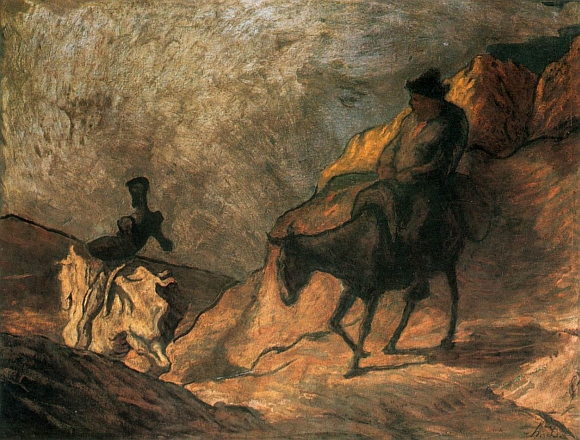
De todo lo dicho quiero que infirais, bobas mías, que es grande la confusion que hay entre los linages, y que solos aquellos parecen grandes y ilustres, que lo muestran en la virtud y en la riqueza y liberalidad de sus dueños. Dije virludes, riquezas y liberalidades, porque el grande que fuere vicioso será vicioso grande, y el rico no liberal será un avaro mendigo: que al poseedor de las riquezas no le hace dichoso el tenerlas, siuo el gastarlas, y no el gastarlas como quiera, sino el saperlas bien gastar. Al caballero pobre no le queda otro camino para mostrar que es caballero, sino el de la virtud, siendo afable, bien críado, cortes, comedido y oficioso; no soberbio, no arrogante, no murmurador, y sobre todo caritativo.
From all that I have said you must clearly see, my good simpletons, that genealogies are involved in endless confusion, and that those only are illustrious and great who are distinguished by their virtue and liberality, as well as their riches: for the great man who is vicious is only a great sinner; and the rich man who wants liberality is but a miserly pauper. The gratification which wealth can bestow is not in mere possession, nor in lavishing it with prodigality, but in the wise application of it. The poor knight can only manifest his rank by his virtues and general conduct. He must be well-bred, courteous, kind and obliging; not proud, not arrogant, no murmurer:—above all, he must be charitable.
—Miguel de Cervantes Saavedra, El ingenioso hidalgo Don Quixote de la Mancha pt. ii, ch. 6 (1615)


